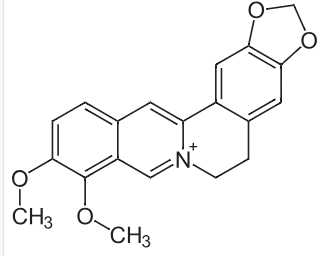In a recent review titled “Berberine: Pharmacological Features in Health, Disease, and Aging” (Gasmi et al., 2024), published in Current Medicinal Chemistry, researchers delved into the extensive pharmacological effects of berberine and its implications for human health and aging.
The paper’s first author, Dr. Amin Gasmi, PhD, is the President of Société Francophone de Nutrithérapie et de Nutrigénétique Appliquée (SOFNNA) in France. SOFNNA is affiliated with the Council for Nutritional and Environmental Medicine (CONEM). The study’s supervisor, Dr. Geir Bjørklund, MD, is the Founder and President of CONEM.
This paper transcended borders, involving researchers from universities and academic partners in France, Pakistan, Ukraine, Italy, Belgium, and Norway, including two of CONEM’s research groups in Ukraine.
 Berberine, an isoquinoline quaternary botanical alkaloid found in various herbs, has garnered attention for its therapeutic benefits across diverse health conditions (Gasmi et al., 2024). Dr. Bjørklund and colleagues analyzed berberine’s pharmacological properties, drawing insights from studies sourced from scientific databases.
Berberine, an isoquinoline quaternary botanical alkaloid found in various herbs, has garnered attention for its therapeutic benefits across diverse health conditions (Gasmi et al., 2024). Dr. Bjørklund and colleagues analyzed berberine’s pharmacological properties, drawing insights from studies sourced from scientific databases.
“Berberine has emerged as a promising natural compound with diverse pharmacological effects,” commented Dr. Bjørklund. “Our review sheds light on its multifaceted role in metabolic regulation, neuroprotection, and potential implications for aging-related disorders.”
The review illuminates berberine’s pivotal role in glucose and fat metabolism, weight loss, and modulation of gut microbiota (Gasmi et al., 2024). Additionally, it highlights its promising neuroprotective properties, holding potential for combating neurodegenerative ailments.
“Berberine’s ability to modulate key metabolic pathways offers exciting prospects for addressing metabolic disorders and age-related decline,” emphasized Dr. Bjørklund. “Its impact on neuroprotection suggests a promising avenue for future research combating neurodegenerative diseases.”
While some studies present conflicting results regarding berberine’s impact on conditions like atherosclerosis and foam cells, the review underscores its potential as a safe and natural substance for preventing premature aging and treating age-related diseases (Gasmi et al., 2024).
“Although further research is warranted to elucidate berberine’s precise mechanisms of action and optimize its therapeutic applications, its potential as a versatile tool in preventive medicine and age-related health interventions is undeniable,” added Dr. Bjørklund.
Berberine has exhibited the ability to rejuvenate aging cells and suppress cancer cells, offering a promising avenue for cancer therapy research (Gasmi et al., 2024). Furthermore, it not only mitigates traditional risk factors such as hypertension, diabetes, and dyslipidemia but also ameliorates metabolic syndrome associated with aging, potentially slowing the onset and progression of neurodegenerative disorders.
“Berberine’s wide spectrum of clinical applications as a potential drug is noteworthy,” remarked Dr. Bjørklund. “Its activation of the AMPK pathway facilitates glucose uptake and utilization while reducing triglyceride and cholesterol synthesis, making it an effective anti-aging agent and weight loss aid.”
However, caution is advised regarding berberine dosage, as heavy doses may lead to adverse effects, except in cancer treatment, where it exhibits anti-cancer properties. Nonetheless, herbal derivatives offer alternative therapy options, particularly in treating diabetes by lowering glycosylated hemoglobin and postprandial blood glucose levels.
The collaborative efforts highlighted in this review underscore the importance of interdisciplinary research in unraveling the pharmacological potential of natural compounds like berberine and its implications for human health, disease, and aging (Gasmi et al., 2024). Dr. Bjørklund concluded, “Our findings emphasize the need for continued exploration of berberine’s therapeutic applications and its integration into clinical practice to promote healthy aging and disease prevention.”
Vital Press
Reference
Gasmi A, Asghar F, Zafar S, Oliinyk P, Khavrona O, Lysiuk R, Peana M, Piscopo S, Antonyak H, Pen JJ, Lozynska I, Noor S, Lenchyk L, Muhammad A, Vladimirova I, Dub N, Antoniv O, Tsal O, Upyr T, Bjørklund G. Berberine: Pharmacological features in health, disease and aging. Curr Med Chem 2024; 31(10): 1214–1234. doi: 10.2174/0929867330666230207112539.